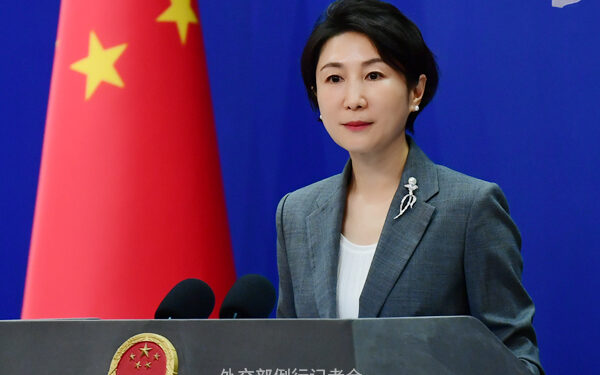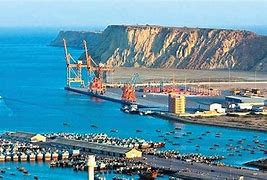At the invitation of the government of the Islamic Republic of Iran, Special Envoy of President Xi Jinping and Vice Chairman of the Standing Committee of the National People’s Congress Peng Qinghua will attend the inauguration ceremony of President Masoud Pezeshkian in Tehran on July 30.
CCTV: China announced President of Timor-Leste José Manuel Ramos-Horta’s state visit to China. Could you share with us the program and China’s expectation for the visit? How does China view the current relations between China and Timor-Leste?
Mao Ning: China and Timor-Leste are traditional friendly neighbors. China is the first country to recognize Timor-Leste’s independence and establish diplomatic relations with the country. Over the past 22 years since the establishment of diplomatic ties, the bilateral relationship has grown smoothly and traditional friendship has enjoyed strong support among the peoples. Last September, President Xi Jinping and Prime Minister Kay Rala Xanana Gusmão jointly announced the elevation of bilateral relations to a comprehensive strategic partnership, opening a new chapter for bilateral relations.
This is President José Manuel Ramos-Horta’s first visit to China after he took office in 2022 and the first state visit of Timor-Leste’s president to China since the establishment of diplomatic ties. President Xi Jinping will hold a welcoming ceremony and banquet for him. The two presidents will have talks. Premier Li Qiang and Chairman Zhao Leji will meet with President José Manuel Ramos-Horta respectively. China stands ready to work with Timor-Leste through this visit to carry forward traditional friendship, deepen mutually beneficial cooperation, and upgrade and further advance the comprehensive strategic partnership.
Reuters: Could you confirm Foreign Minister Wang Yi will meet US Secretary of State Antony Blinken in Laos today? Reports mentioned that both will meet. What will they discuss?
Mao Ning: Foreign Minister Wang Yi will meet with US Secretary of State Antony Blinken in Laos at the request of the US side and they will exchange views on issues of mutual interest. We will release timely information on their meeting. So please stay tuned.
Shenzhen TV: We’re now hours away from the Paris Olympics. Team China has arrived in Paris and started pre-Games preparation. From chip-embedded soccer balls to high-end LED video floor, and to the Phryge cuddly toys, “made in China” can be found everywhere at the Games. Do you have a comment on that?
Mao Ning: With the 33rd Olympic Games opening soon, all eyes are on Paris. When President Xi Jinping visited France in May, he gave President Emmanuel Macron the Beijing Olympic and Paralympic Torch as a gift to wish the Paris Olympics a success and told President Macron that China will send a high-level delegation to the Games. The Chinese delegation has arrived in Paris, ready to bring out their talent with athletes from around the world. Yesterday, President Xi Jinping’s Special Representative, Vice President Han Zheng, visited Team China in the Olympic Village and expressed the hope that the Chinese athletes will show excellent sportsmanship, deepen mutual understanding and friendship with athletes from all countries, showcase a good image of China in the new era and act as bridges for intercultural exchanges.
You mentioned “made in China.” This is, I would say, also one of the ways that China participates in the Olympics. High-quality Chinese products will provide technical and service support for the Paris Olympics and make the Games even more stunning visually and technologically.
We wish athletes from all countries an excellent Games and every success as they live up to the Olympic motto of “Faster, Higher, Stronger—Together” and the best of luck reaching for their dreams in Paris.

Xinhua News Agency: The third plenary session of the 20th CPC Central Committee is held at a time when the world is going through rapid changes unseen in a century and facing new uncertainty and transformation. The session stressed that Chinese modernization is the modernization of peaceful development, and China remains firmly committed to an independent foreign policy of peace. In what ways will the outcomes of the session guide China’s major-country diplomacy going forward?
Mao Ning: The third plenary session of the 20th Central Committee of the CPC is a very important meeting held at a critical juncture of building a great country and advancing national rejuvenation in all respects through Chinese modernization. The plenary session stated that China must remain firm in pursuing an independent foreign policy of peace, be dedicated to promoting a community with a shared future for humanity, and foster a favorable external environment for further deepening reform comprehensively and advancing Chinese modernization. We will follow the guidance of Xi Jinping Thought on Diplomacy, fully act on the guiding principles from the third plenary session, and turn the strategic plans for further deepening reform into great momentum for major-country diplomacy with Chinese characteristics.
Chinese modernization is achieved through peaceful development. The modernization of China means a greater force for global peace and development. We are committed to pursuing common, comprehensive, cooperative and sustainable security, and to resolving disputes and differences through dialogue and consultation and enhancing security through cooperation. We will keep pursuing high-standard and institutional opening up, and provide new opportunities for global development with progress in China’s modernization. We will continue to advocate the common values of humanity, promote dialogue, exchanges and mutual learning on an equal footing among all civilizations, and always remain a driving force for progress of humanity.
China is dedicated to world peace and common development. We will continue to advance the Global Development Initiative, the Global Security Initiative and the Global Civilization Initiative put forward by President Xi Jinping, build a community with a shared future for humanity, and contribute to an open, inclusive, clean and beautiful world that enjoys lasting peace, universal security and common prosperity.
Phoenix TV: We noted that China has recently made a series of efforts to promote talks for peace on the Ukraine crisis. Is there any plan by China to carry out a new round of shuttle diplomacy?
Mao Ning: The Ukraine crisis has been in full escalation for nearly two and a half years. The fighting is still ongoing, the prospect for peace talks remains unclear, and the conflict could further escalate and spill over. There is widespread concern among the international community, especially countries of the Global South, about the situation and the call for deescalation has become all the more urgent. As a permanent member of the UN Security Council and responsible major country, China is firmly committed to finding a political solution to the crisis. President Xi Jinping laid out four principles for that purpose, based on which China and Brazil jointly issued six common understandings, which are widely welcomed and supported by the international community.
Against this backdrop, China will send Special Representative of the Chinese Government on Eurasian Affairs Li Hui to visit Brazil, South Africa and Indonesia. Starting from July 28, he will carry out the fourth round of shuttle diplomacy on the crisis, further exchange views with major members of the Global South on the current situation and the process of peace talks, discuss with them the deescalation of the situation, and accumulate conditions for restoring the peace talks.
China News Service: It’s reported that during the second session of the Preparatory Committee for the Eleventh Review Conference of the Parties to the Treaty on the Non-Proliferation of Nuclear Weapons (NPT) in Geneva, China Arms Control and Disarmament Association and China Institute of Nuclear Industry Strategy yesterday held a side event on NATO’s nuclear sharing and released the report entitled “Analysis of the Incompatibility of NATO’s Nuclear Sharing Arrangements with the Treaty on the Non-Proliferation of Nuclear Weapons,” which calls into question the legality of NATO’s nuclear sharing. What’s your comment?
Mao Ning: The Chinese delegation attended the side event you mentioned. We also noted the analysis report which points out that NATO’s nuclear sharing arrangements violate the NPT and are essentially a special form of nuclear proliferation.
The NPT prohibits the transfer of nuclear weapons or control over such weapons, directly or indirectly. The US deployed nuclear weapons on the soil of non-nuclear-weapon NATO states and allowed these countries’ fighter jets to carry and drop nuclear weapons, which is apparently a violation of NPT regulations and an action of nuclear proliferation and can trigger similar behavior from more countries. It in effect obstructs the process of nuclear arms control, increases the risks of nuclear conflict and undermines global strategic stability.
China firmly upholds the international nuclear disarmament and nuclear non-proliferation regime with the NPT as its cornerstone, and calls on relevant country to abandon the Cold War mentality and zero-sum approach, abolish nuclear sharing arrangements, pull out the large number of nuclear weapons deployed in Europe and by no means replicate the nuclear sharing arrangements here in the Asia-Pacific.
Hubei Media Group: Today, the ASEAN-China Foreign Ministers’ Meeting was held in Vientiane, Laos. The ASEAN-China Foreign Ministers’ Joint Statement on Strengthening Humanitarian Mine Action Cooperation was issued after the meeting. Could you share more details with us?
Mao Ning: In Southeast Asia, landmines and other explosive remnants of war (ERW) remains a serious issue. As ASEAN countries’ close neighbor, friend and partner, China has long been committed to humanitarian mine action cooperation with ASEAN. By providing assistance, training personnel, and sending experts, China has actively helped enhance the capacity for mine action of ASEAN Member States affected by landmines and other ERW and make lives safer and better for the local people.
The ASEAN-China Foreign Ministers’ Joint Statement on Strengthening Humanitarian Mine Action Cooperation speaks highly of China-ASEAN mine action cooperation, and identifies the way forward and next steps for the cooperation. This is a good document with vision, consensus and action, and will give fresh impetus to solving the issue of landmines and other ERW in Southeast Asia and regional peace and development. China stands ready to work with ASEAN countries to follow through the statement, continue to strengthen mine action cooperation, and jointly build a peaceful, safe and secure, prosperous, beautiful and amicable common home.
AFP: Wang Yi held talks with his Russian counterpart on the sidelines of the ASEAN meetings. According to the Russian readout, the two ministers discussed ways to implement the concept of building a new security architecture for Eurasia. What does this concept mean exactly?
Mao Ning: We’ve released a readout on the meeting between Foreign Minister Wang Yi and his Russian counterpart. I don’t have anything to add.


















